Buying a home in Japan, whether as a resident or a foreign investor, requires a solid understanding of the housing market. From Tokyo’s high-rise condominiums to countryside family homes, property prices in Japan vary significantly based on location, property type, and ownership structure. This guide breaks down everything you need to know about the Japan average house price, including investment potential, key price drivers, and the buying process.
Current Property Prices Across Japan
Japan’s housing market offers a wide spectrum of property prices depending on location, property type, and age. In metropolitan areas like Tokyo, especially in prime districts such as Minato, Shibuya, or Chiyoda, newly constructed condominiums often command prices between ¥80 million and ¥120 million (approximately $500,000–$800,000 USD). These properties are typically modern, well-equipped, and situated near top-tier amenities, business hubs, and major train stations, factors that significantly drive up their value.
Meanwhile, cities like Osaka present more accessible options for buyers, with average property prices generally ranging from ¥40 million to ¥70 million. Homes near central train stations or commercial districts may fall on the higher end of that range, but they still offer better affordability than similar listings in Tokyo.
For those open to relocating outside Japan’s major cities, areas like Fukuoka, Sapporo, Nagano, or even countryside towns provide significantly lower entry points into the market. Older detached houses in rural regions or suburban areas can be found for under ¥20 million, making them appealing to budget-conscious buyers or investors looking for renovation opportunities.
This pricing diversity across Japan makes it essential for buyers to assess not just their budget, but also long-term plans and lifestyle preferences when selecting where and what to purchase.
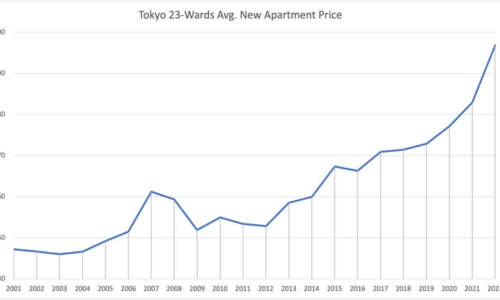
New Builds vs. Secondhand Homes
In Japan, brand-new properties typically come with a premium price tag, especially in urban areas. These newly built homes offer modern amenities, energy efficiency, and the latest design features, making them highly attractive to buyers seeking convenience and contemporary living. However, it’s important to note that new homes in Japan tend to depreciate faster than in many Western countries, with their market value often dropping sharply within the first 10–15 years.
On the other hand, pre-owned homes, referred to locally as “chuko” properties, are often significantly more affordable. While these older residences may lack the latest fixtures, they can present excellent value, particularly if they’ve been well maintained or recently renovated. Many investors and homeowners find opportunities in these properties by budgeting for updates or repairs to enhance livability and long-term value.
When comparing new vs. used properties, it’s crucial to factor in more than just the upfront cost. Consider potential renovation expenses, ongoing maintenance, and how each option may hold or lose value over time. For buyers looking to maximize their investment or resell in the future, a well-located chuko property in good condition can sometimes offer a better return than a new building in a less desirable area
Expected Returns from Rental Properties in Japan
If you’re exploring real estate investment opportunities in Japan, the rental market can offer steady income, though returns vary greatly depending on the location. While Japan may not deliver the high rental yields seen in some other Asian countries, it attracts investors with its stable economy, strong legal protections, and a highly transparent real estate system.
In Tokyo, rental yields generally range between 2% and 4% per year. Central wards like Minato, Shibuya, and Chiyoda tend to offer lower returns due to high purchase prices, but these areas consistently maintain high occupancy rates and strong tenant demand. If you’re looking for long-term stability, central Tokyo is a solid choice.
Cities like Osaka and Nagoya typically offer better returns, averaging around 4% to 6% annually. Property prices are more affordable, and rental demand remains healthy, especially near train stations, business hubs, and universities where long-term tenants are common.
For those seeking higher potential yields, up-and-coming areas such as Fukuoka, Sapporo, or Hokkaido may deliver 6% or more. However, these markets come with greater risks, such as longer vacancy periods or less predictable demand.
In summary, while Japan’s rental returns are moderate, the country’s reliable legal framework and low market volatility make it ideal for investors seeking safe, long-term capital preservation with consistent income.
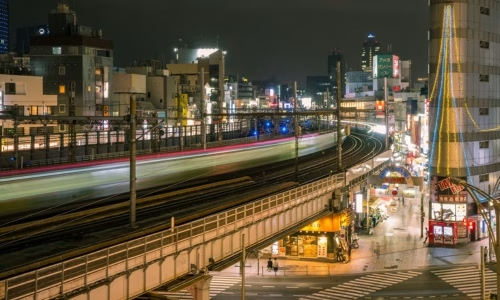
Key Factors That Influence Property Value in Japan
Whether you’re buying a home or investing in real estate, it’s important to know what affects property value in Japan. From location and land rights to floor space and building quality, several elements come into play. These factors not only influence current pricing but also impact long-term appreciation and resale potential. Let’s explore the most important aspects that determine how much a property is truly worth in Japan’s housing market.
Location and Transport Access
In Japan’s real estate market, location is one of the most important factors influencing property value. Properties that are conveniently located, particularly those within a 10-minute walking distance of a major train or subway station, consistently command higher prices and enjoy strong rental demand. Easy access to public transportation is a top priority for both local residents and expatriates, as it significantly reduces commute times and enhances overall convenience.
In addition, neighborhoods that are close to business centers, commercial zones, shopping districts, and reputable international schools tend to be more desirable. These areas often see higher appreciation in property value over time and are considered smart choices for long-term investment. For buyers and investors alike, choosing a location with strong infrastructure and transport connectivity can lead to better resale potential and stable rental income.
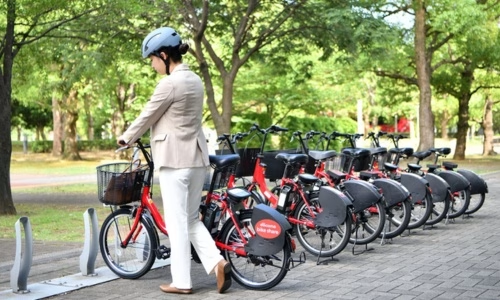
Living Space and Building Quality
In Japan, residential space is typically calculated in square meters, and even a modest increase in floor area, such as 10 sqm, can lead to a noticeable difference in property price. Larger units are especially valued in urban centers like Tokyo, where space is limited and high in demand. Buyers looking for long-term comfort or better rental returns often prioritize size when comparing similar listings.
Beyond size, the condition of the property plays a vital role in determining its market value. Buildings that have been well maintained, recently renovated, or constructed to meet modern earthquake resistance standards (such as those implemented after 1981) are generally more attractive to buyers. Newer properties or those with updated safety features not only offer peace of mind but also reduce future repair and upgrade costs. When evaluating a potential home or investment, it’s essential to consider both the usable space and the structural integrity of the building.
Land vs. Building Ownership
When purchasing real estate in Japan, understanding property ownership structures is essential for making informed decisions. Detached houses usually come with land ownership, giving the buyer full control over both the structure and the land beneath it. This type of ownership, known as freehold, offers greater long-term flexibility and potential for future redevelopment or resale.
In contrast, most condominiums, referred to as “mansions” in Japan, operate under a joint ownership model. Buyers own their individual unit but share ownership of common areas such as hallways, elevators, and the building’s exterior. These properties often come with monthly management and repair fees, which fund building upkeep and reserve funds for major renovations.
There is also the leasehold system, where ownership is limited to the building or unit itself, while the land is leased from another party. Leasehold arrangements typically involve additional conditions, such as time-limited contracts or renewal fees.
Before making a purchase, it’s crucial to evaluate not only the property itself but also the type of ownership attached to it. This can significantly affect long-term costs, resale opportunities, and your rights as an owner.
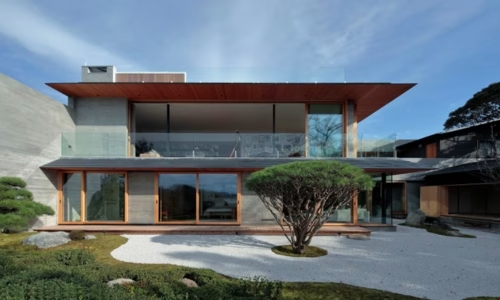
Japan Real Estate Purchase Made Easy
Buying real estate in Japan as a foreigner is a relatively straightforward process, especially with the help of experienced agents and bilingual platforms. Below is a breakdown of each stage to help you navigate your home-buying journey with confidence:
- Search & Shortlist – Use bilingual real estate platforms or contact an agent experienced in working with foreigners.
- Property Visit & Evaluation – Inspect the home, check legal documents, and consider third-party inspections.
- Negotiation & Offer – Offers are typically submitted in writing, and negotiation is part of the process.
- Contract & Legal Steps – Sign a sales agreement, pay a deposit (usually 5–10%), and hire a judicial scrivener for due diligence.
- Final Payment & Registration – Settle the remaining amount, pay registration tax, and transfer ownership.
- Post-Purchase Costs – Budget for property tax, maintenance fees (if any), and insurance.
Additional Costs to Consider
Beyond the property price, several extra fees are typically involved in the transaction:
- Contract-based stamp duty fee
- Agent commission (usually 3% of the purchase price + ¥60,000 + consumption tax)
- Registration and license taxes
- Legal and documentation fees for the judicial scrivener\
Why Arealty Is the Go-To Real Estate Partner for Foreigners in Japan
Navigating the housing market in Japan as a foreigner can feel overwhelming. Language gaps, unfamiliar paperwork, and strict rental criteria often get in the way. That’s where Arealty comes in. We simplify the journey by offering a seamless, full-service real estate experience built specifically for international clients.
Here’s what makes Arealty different
- Our team understands both your language and your lifestyle: Our multilingual agents are fluent in English, Japanese, Vietnamese, and more. They provide friendly and professional guidance tailored to international clients.
- Complete support for all your housing needs: From short-term rentals to long-term leases and home purchases in Tokyo and surrounding areas, Arealty offers flexible solutions to match your goals and budget.
- Foreign-friendly properties in prime locations: We work with trusted landlords and offer listings in popular neighborhoods such as Minato, Shibuya, Meguro, and Setagaya. These areas are known for being welcoming to foreigners.
- Clear assistance with paperwork and contracts: Arealty manages all necessary documentation, provides bilingual contracts, and helps set up essential services like electricity, internet, water, and gas.
- Reliable service even after you move in: Need help with maintenance, upgrades, or residency advice? Arealty stays by your side long after your move-in date.
Conclusion
Understanding the Japan average house price is just the first step in making a smart property purchase. Whether you’re relocating, investing, or buying a second home, success comes from balancing price, location, condition, and ownership terms. With careful research and the right support, purchasing real estate in Japan can be a rewarding and stable long-term investment.

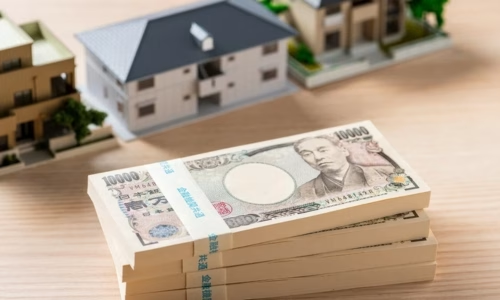

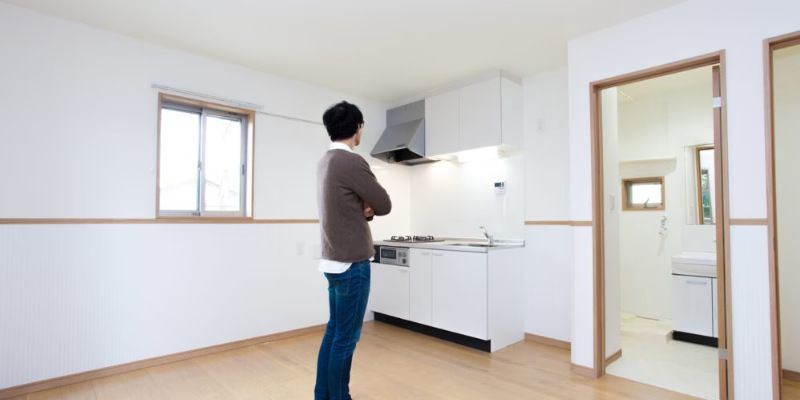
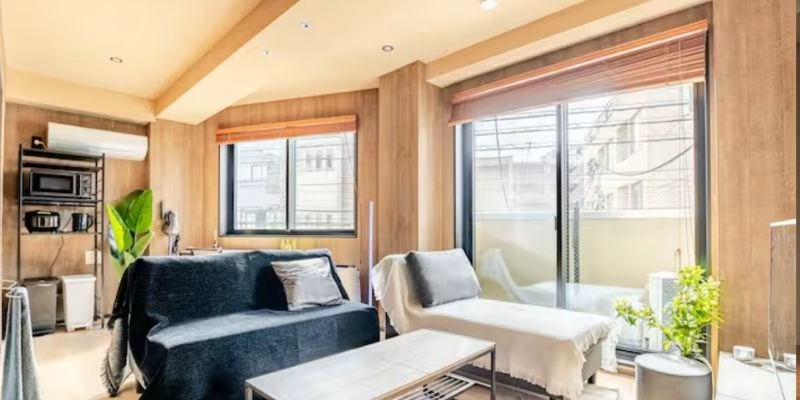

Leave a Reply